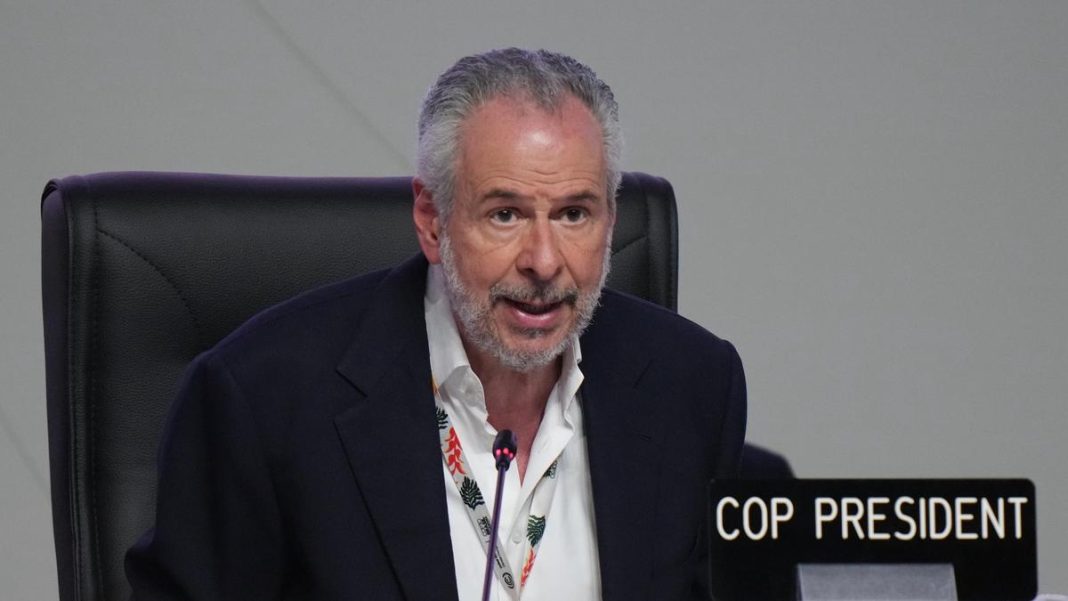The curtains have fallen on the 30th Conference of the Parties (COP30) to the UN Framework Convention on Climate Change, held amidst the lush Amazon rainforest in Belém, Brazil. The summit concluded with a landmark agreement that charts a course towards ending deforestation and signals a crucial shift in global energy policy, committing nations to “transition away” from fossil fuels. For India, a nation balancing rapid economic growth with significant climate vulnerabilities, the outcomes of COP30 carry profound implications, influencing its developmental trajectory and environmental stewardship.
A Unified Front Against Deforestation
One of COP30’s most significant achievements is the strengthened global commitment to halt and reverse deforestation by 2030. Building on previous pledges, the new roadmap emphasizes not just the preservation of existing forests but also large-scale restoration efforts. Crucially, the agreement highlights the indispensable role of indigenous communities and local populations in forest conservation, recognising their traditional knowledge and tenure rights as vital for effective implementation. Financial mechanisms for developing nations, including carbon credit markets and international aid, are slated for enhancement to support these ambitious goals.
For India, a country rich in biodiversity with critical forest ecosystems like the Western Ghats and the Himalayan range, this global consensus resonates deeply. India has its own ambitious targets for increasing forest cover and has implemented programmes such as the National Afforestation Programme and compensatory afforestation initiatives. However, balancing developmental needs with conservation remains a complex challenge, particularly concerning land use for infrastructure and agriculture. The COP30 roadmap offers an opportunity for India to further integrate global best practices and secure international support for its ongoing efforts, while also critically examining the impact of its policies on forest-dependent communities.
Navigating the Energy Transition: ‘Transition Away’ from Fossil Fuels
Perhaps the most intensely negotiated outcome was the language surrounding fossil fuels. After prolonged discussions, the final text urged countries to contribute to “transitioning away from fossil fuels in a just, orderly and equitable manner,” moving towards “net zero by 2050 in keeping with the science.” This phrase marks a pivotal moment, being the first time a COP agreement has directly addressed the future of all fossil fuels – coal, oil, and gas – rather than just coal.
The distinction between “transition away” and “phase out” is significant, acknowledging the varying capacities and energy demands of nations. For India, the world’s third-largest emitter and heavily reliant on coal for its energy security, this nuanced phrasing is particularly pertinent. India has consistently advocated for climate justice, stressing the principle of “common but differentiated responsibilities and respective capabilities.” With a rapidly expanding economy and a massive population still requiring access to affordable energy, India’s energy transition path must be carefully calibrated to ensure energy security and prevent adverse socio-economic impacts.
“The agreement at COP30 represents a pragmatic step forward, acknowledging the diverse realities nations face,” remarked Dr. Anjali Sharma, a climate policy expert from the New Delhi-based Council for Energy, Environment and Water. “While some hoped for a stronger ‘phase out’ commitment, the consensus on ‘transition away’ opens avenues for tailored national strategies that can accelerate renewables while managing the socio-economic implications of reducing fossil fuel dependence. For India, this means continued investment in solar, wind, and green hydrogen, coupled with technological innovation and global financial support to ensure a just transition for millions dependent on traditional energy sectors.”
The Road Ahead: Implementation and Equity
While the agreements at COP30 provide a clear direction, the true test lies in their implementation. The roadmap for deforestation requires significant financial backing and robust governance mechanisms to prevent greenwashing and ensure genuine change. Similarly, the “transition away” from fossil fuels necessitates unprecedented investment in renewable energy infrastructure, energy storage, and smart grids, alongside policies that support workers and communities currently dependent on fossil fuel industries.
For India, achieving these goals will involve navigating complex domestic priorities. Its ambitious renewable energy targets – aiming for 500 GW of non-fossil fuel electricity capacity by 2030 – demonstrate a clear commitment to the energy transition. However, bridging the technology gap and securing adequate climate finance from developed nations remain critical. COP30’s outcomes underscore the global interdependence in tackling climate change, reiterating that a collective, equitable approach is the only sustainable path forward.
The close of COP30 marks a significant, albeit challenging, step in the global fight against climate change. The agreements on deforestation and fossil fuels set a new benchmark for international climate action. As India continues its journey of development, its ability to integrate these global commitments into its national policies, while upholding the principles of equity and climate justice, will be pivotal not just for its own future but for the collective health of the planet.




